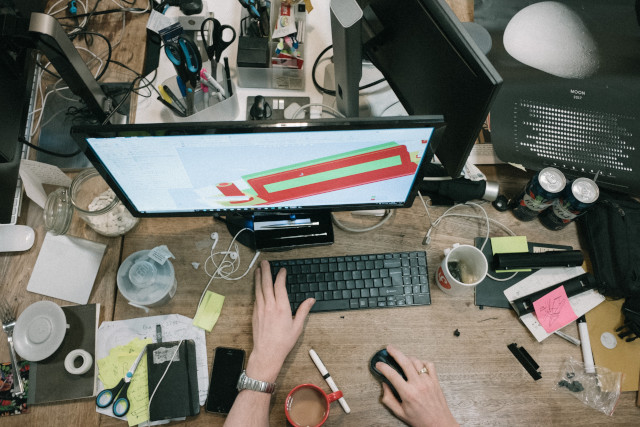
Photo by Max van den Oetelaar on Unsplash
- Thousands of techies in locked-down India are braving coronavirus daily to keep the world running
“Many different areas in ODCs are blocked off with separate access cards…Even if the client wants to be considerate, it’s not possible because you may be violating a regulatory applicable policy,” said Benoy CS, vice-president of the digital transformation practice at research and consulting firm Frost & Sullivan. “Some ODCs won’t even allow mobile phones or anybody with a camera. These physical security measures cannot be implemented at home.”
Firms like Wipro, India’s third-largest IT company, are seeking waivers, but it is risky, Benoy added.
In any case, configuring corporate virtual private networks (VPN)—programming that creates a safe, encrypted connection over the public internet—to give access to multiple devices from different locations and building traceability has been a challenge for the industry. IT body Nasscom is working with the government for favourable policies on this front.
https://qz.com/india/1834746/some-tcs-infosys-wipro-staff-go-to-work-amid-coronavirus/
- How a stockpile of 39 million masks was exposed as fake
Brady said federal investigators had reason to suspect the arrangement. The 39 million masks were advertised as N95 masks from 3M, the largest U.S.-based manufacturer. But 3M told federal investigators it manufactured only 20 million such masks last year, making that large of a stockpile unlikely unless the product was counterfeit.
“We believe we disrupted fraud,” Brady said. “We are seeing [personal protective equipment] fraud in every variation, but mostly in respect to N95 masks. We have an anxious public, and resources are strained.”
https://www.latimes.com/california/story/2020-04-11/coronavirus-seiu-masks-fraud-fbi
- 10 joy-inducing aesthetics you should know
This is a little hippie-dippie but maybe you will get something out of it… - Will We Forgive Amazon When This Is Over?
When parrying claims that it’s a monopolist, Amazon often cites the statistic that e-commerce is only 16% of all retail. With stores closed and delivery the only safe option for many vulnerable people, it’s clear that proportion will spike in the coming months. Reports from employees and analysts indicate volumes in Amazon’s warehouses are on par with seasonal surges around the holidays. Market-research firm CommerceIQ reported sales of toilet paper are up 186%, while cough and cold medicine sales are up 862%.
While demand for those products remains high, Amazon shoppers are unable to get many of the essential products the company says it’s prioritizing now. My search for toilet paper on Amazon yielded a jumbo 700-foot roll of commercial toilet paper in the first slot. In the second? A baffling block of text in lieu of a product image, stating that customers ordering this product after April 6 won’t receive it, so they shouldn’t bother. And everything considered nonessential takes more time than the two days Amazon conditioned us to expect.
https://www.wsj.com/articles/will-we-forgive-amazon-when-this-is-over-11586577604
- Microsoft to give parents 12 weeks of paid leave to help deal with extended school closures
Microsoft is offering a new benefit to employees dealing with extended school closures.
Parents who work for the company can get three months of paid parental leave. It doesn’t have to be taken as a single chunk.
Workers can take it a week, or event a few days, at a time.
An estimated 1.6 billion students around the globe are home right now because their schools have closed due to the coronavirus outbreak.
Many states, like Washington, where Microsoft is headquartered, have already said schools will not open again until the next academic year.





